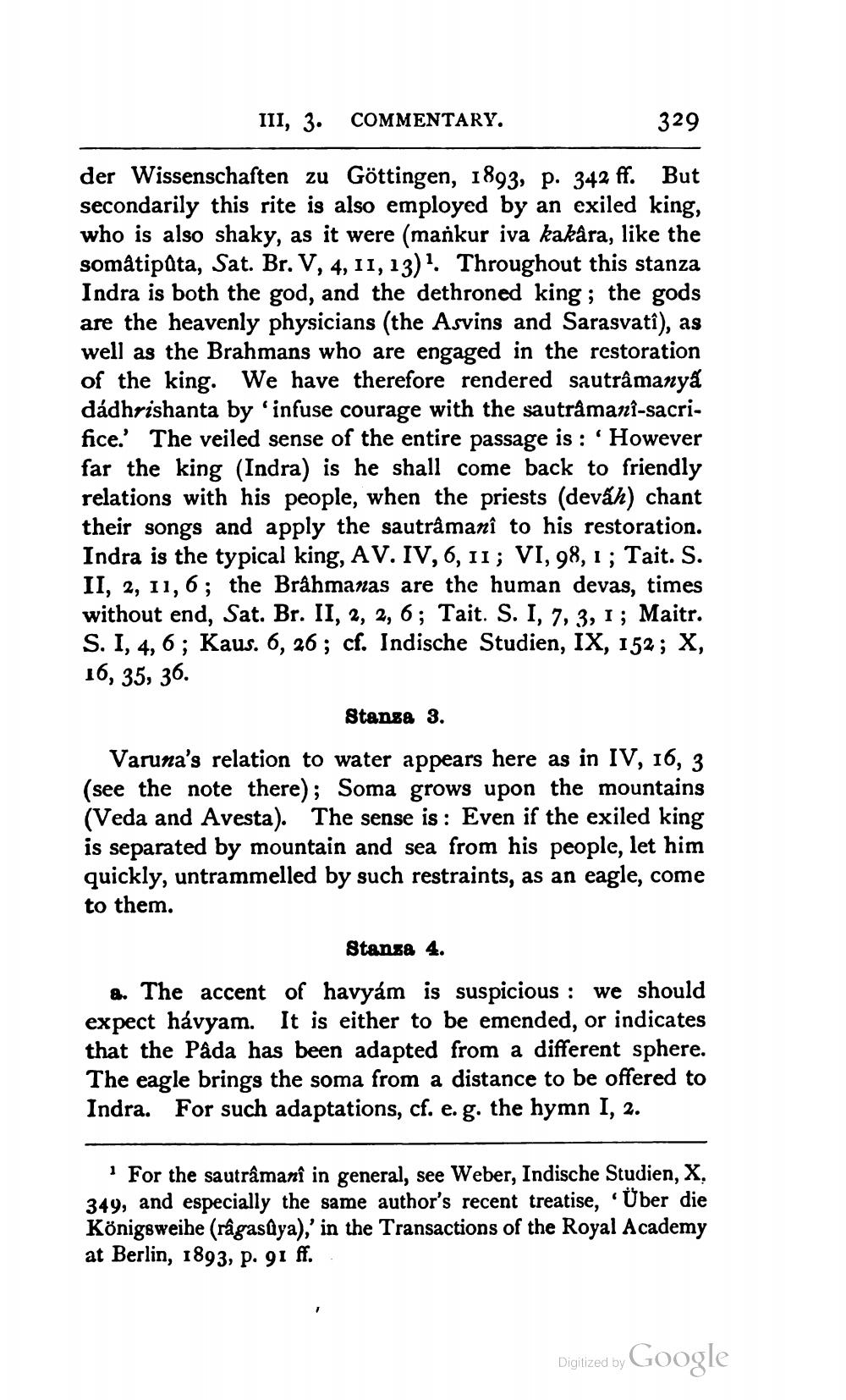________________
III, 3. COMMENTARY.
329
der Wissenschaften zu Göttingen, 1893, p. 342 ff. But secondarily this rite is also employed by an exiled king, who is also shaky, as it were (mankur iva kakâra, like the somatipata, Sat. Br. V, 4, 11, 13). Throughout this stanza Indra is both the god, and the dethroned king; the gods are the heavenly physicians (the Asvins and Sarasvatî), as well as the Brahmans who are engaged in the restoration of the king. We have therefore rendered sautrâmanya dádhrishanta by 'infuse courage with the sautråmani-sacrifice.' The veiled sense of the entire passage is : 'However far the king (Indra) is he shall come back to friendly relations with his people, when the priests (deváh) chant their songs and apply the sautråmanî to his restoration. Indra is the typical king, AV. IV, 6, 11; VI, 98, 1; Tait. S. II, 2, 11, 6; the Brahmanas are the human devas, times without end, Sat. Br. II, 2, 2, 6; Tait. S. I, 7, 3, 1 ; Maitr. S. I, 4, 6; Kaus. 6, 26; cf. Indische Studien, IX, 152; X, 16, 35, 36.
Stansa 3.
Varuna's relation to water appears here as in IV, 16, 3 (see the note there); Soma grows upon the mountains (Veda and Avesta). The sense is : Even if the exiled king is separated by mountain and sea from his people, let him quickly, untrammelled by such restraints, as an eagle, come to them.
Stansa 4. 2. The accent of havyám is suspicious : we should expect hávyam. It is either to be emended, or indicates that the Pada has been adapted from a different sphere. The eagle brings the soma from a distance to be offered to Indra. For such adaptations, cf. e. g. the hymn I, 2.
For the sautrâmanî in general, see Weber, Indische Studien, X. 349, and especially the same author's recent treatise, Über die Königsweihe (râgasûya),' in the Transactions of the Royal Academy at Berlin, 1893, p. 91 ff.
Digitized by
Digitized by Google




